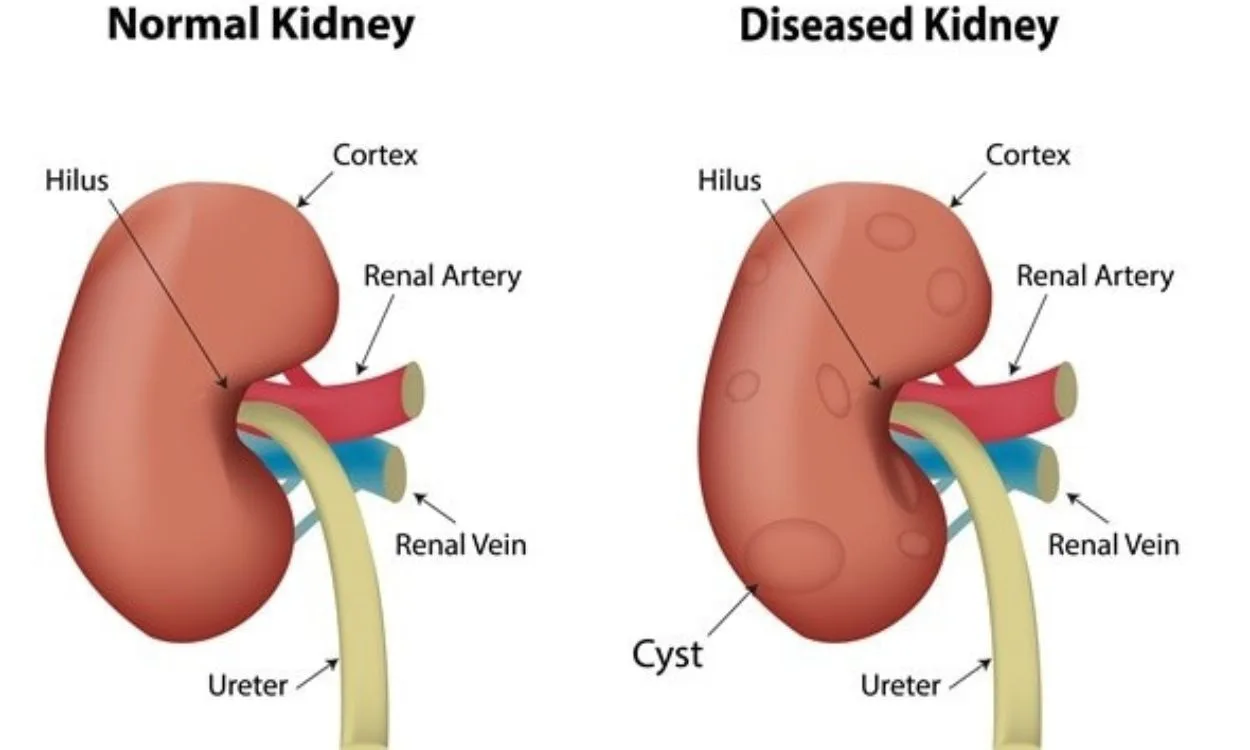Is PKD Hereditary?
Polycystic Kidney Disease (PKD) is a genetic disorder characterized by the growth of cysts in the kidneys. It is a chronic condition that can lead to kidney failure if left untreated. In this article, we will explore the hereditary nature of PKD and provide information on how it is passed down in families.
Understanding PKD Genetics
PKD can be classified into two types: Autosomal Dominant PKD (ADPKD) and Autosomal Recessive PKD (ARPKD).
- Autosomal Dominant PKD (ADPKD):
- ADPKD is the most common type of PKD, accounting for around 90% of all cases.
- It is caused by mutations in either the PKD1 or PKD2 genes.
- ADPKD follows an autosomal dominant inheritance pattern, which means that if one parent carries the mutated gene, there is a 50% chance of passing it on to each child.
- Symptoms of ADPKD usually develop in adulthood, typically between the ages of 30 and 40.
- Autosomal Recessive PKD (ARPKD):
- ARPKD is a rare form of PKD that occurs in approximately 1 in 20,000 births.
- It is caused by mutations in the PKHD1 gene.
- ARPKD follows an autosomal recessive inheritance pattern, which means that both parents must carry the mutated gene to have an affected child.
- Symptoms of ARPKD can be present at birth or may develop in early childhood.
Genetic Testing for PKD
Genetic testing can be done to determine if an individual carries the mutated genes associated with PKD. It can be particularly useful for individuals with a family history of PKD who may be considering starting a family or for those experiencing symptoms of the disease.
- Preimplantation Genetic Diagnosis (PGD):
- PGD is a reproductive technology that allows couples at risk of passing on a genetic disorder to have embryos tested before implantation.
- By using in vitro fertilization (IVF), embryos are created in a laboratory, and a single cell is removed for genetic testing.
- Only embryos without the mutations associated with PKD are selected for implantation, reducing the risk of passing on the disease to future generations.
- Prenatal Genetic Testing:
- Prenatal genetic testing can be done during pregnancy to determine if the fetus has inherited the mutated genes associated with PKD.
- Testing options include chorionic villus sampling (CVS) and amniocentesis, which collect cells from the placenta or amniotic fluid, respectively.
- Results of prenatal genetic testing can help parents make informed decisions about the pregnancy and plan for the future care of the child if PKD is detected.
Managing PKD
While PKD is a genetic condition without a cure, there are ways to manage the disease and slow down its progression.
- Regular Medical Check-ups:
- Routine check-ups with a nephrologist are essential to monitor kidney function, blood pressure, and overall health.
- Medications may be prescribed to control blood pressure and manage symptoms.
- Healthy Lifestyle Choices:
- Adopting a healthy lifestyle can help slow down the progression of PKD and reduce complications.
- Eating a balanced diet, low in salt and saturated fats, can help maintain kidney health.
- Regular physical activity and maintaining a healthy weight are beneficial.
- Monitoring and Treating Complications:
- Regular ultrasound or MRI scans may be recommended to monitor the growth of kidney cysts.
- In cases of severe kidney damage, dialysis or a kidney transplant may be necessary.
Conclusion
PKD is a hereditary condition that can be passed down through generations. Understanding the genetic nature of PKD and undergoing genetic testing can help individuals make informed decisions about family planning and seek appropriate medical care. While there is no cure for PKD, early detection, regular medical check-ups, and a healthy lifestyle can help manage the disease and improve quality of life.
Are you at risk of PKD or concerned about your family’s health? Download the Fitpaa app today to get personalized guidance and support from our expert team of doctors, nutritionists, and fitness coaches. We are here to help you achieve your health and fitness goals while managing genetic conditions like PKD. Your well-being is our mission!









